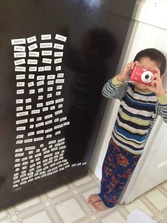Cal Newport, New York Times, September 29, 2012
"IN the spring of 2004, during my senior year of college, I faced a hard decision about my future career. I had a job offer from Microsoft and an acceptance letter from the computer science doctoral program at the Massachusetts Institute of Technology. I had also just handed in the manuscript for my first nonfiction book, which opened the option of becoming a full-time writer. These are three strikingly different career paths, and I had to choose which one was right for me.
"For many of my peers, this decision would have been fraught with anxiety. Growing up, we were told by guidance counselors, career advice books, the news media and others to “follow our passion.” This advice assumes that we all have a pre-existing passion waiting to be discovered. If we have the courage to discover this calling and to match it to our livelihood, the thinking goes, we’ll end up happy. If we lack this courage, we’ll end up bored and unfulfilled — or, worse, in law school.
"To a small group of people, this advice makes sense, because they have a clear passion. Maybe they’ve always wanted to be doctors, writers, musicians and so on, and can’t imagine being anything else.
"But this philosophy puts a lot of pressure on the rest of us — and demands long deliberation. If we’re not careful, it tells us, we may end up missing our true calling. And even after we make a choice, we’re still not free from its effects. Every time our work becomes hard, we are pushed toward an existential crisis, centered on what for many is an obnoxiously unanswerable question: “Is this what I’m really meant to be doing?” This constant doubt generates anxiety and chronic job-hopping.
"As I considered my options during my senior year of college, I knew all about this Cult of Passion and its demands. But I chose to ignore it. The alternative career philosophy that drove me is based on this simple premise: The traits that lead people to love their work are general and have little to do with a job’s specifics. These traits include a sense of autonomy and the feeling that you’re good at what you do and are having an impact on the world. Decades of research on workplace motivation back this up. (Daniel Pink’s book “Drive” offers a nice summary of this literature.)"


 RSS Feed
RSS Feed
